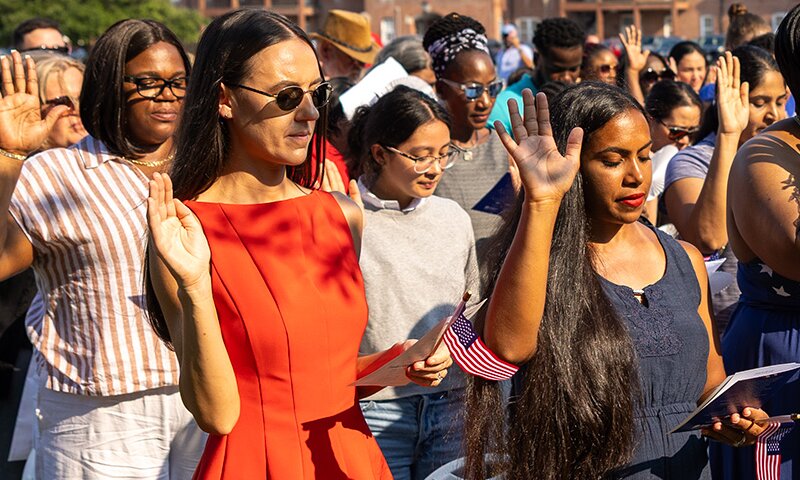US Citizenship and Immigration Services (USCIS) has updated its policy guidance to clarify the application of the Board of Immigration Appeals (BIA) decision in Matter of Zhang, 27 I&N Dec. 569 (BIA 2019), concerning the false claim to US citizenship ground of inadmissibility. The new guidance specifies that the BIA decision supersedes previous Department of Homeland Security (DHS) policies that provided a defense based on an applicant’s lack of knowledge or legal capacity.
The update, effective immediately, revises Volume 8, Part K, Chapter 2 of the USCIS Policy Manual. The agency stated that the new guidance is intended to enhance screening and vetting processes to identify individuals who seek to defraud or misuse the immigration system.
The clarification means that even an accidental claim can destroy one’s ability to stay in the US.
Background and Context of the False Claim Ground
Congress established the false claim to US citizenship as a specific ground of inadmissibility under the Immigration and Nationality Act (INA) section 212(a)(6)(C)(ii) to address individuals who falsely claim to be a US citizen to obtain a benefit under federal or state law. This provision applies to claims made on or after September 30, 1996. The statute carries a permanent bar to adjustment of status, with very limited exceptions. One narrow exception applies to certain individuals who have resided in the United States since before the age of 16.
Before the Matter of Zhang decision, some courts and immigration authorities had considered an alien’s knowledge or intent when a false claim was made. The key legal question was whether a false claim needed to be “knowingly” made to trigger the inadmissibility ground.
The Matter of Zhang Decision
On June 28, 2019, the BIA issued a precedential decision in the Matter of Zhang that reinterpreted this aspect of the law. The case involved a Chinese national who was a permanent resident and had applied for naturalization. The individual had previously voted in a federal election, a right reserved for US citizens. During his naturalization interview, he was found to be removable based on a false claim to US citizenship.
In its ruling, the BIA concluded that the INA’s language does not require a showing of “intent” for the false claim to be a basis for inadmissibility. The decision held that the statute’s plain language does not include a mens rea, or mental state, requirement. This means that an alien’s false claim to US citizenship does not need to be knowingly made to result in immigration consequences.
The BIA’s decision in the Matter of Zhang resolved a circuit split on the issue and established a controlling legal precedent that has been incorporated into USCIS policy.
Impact of the Clarified Policy
The new USCIS guidance clarifies that Matter of Zhang overrides any prior DHS policy or guidance that had provided a defense to the false claim ground of inadmissibility based on an alien’s knowledge or legal capacity at the time the claim was made.
However, the updated manual does provide a framework for officers to evaluate subjective intent. It explains how officers should consider factors such as age, knowledge, and mental capacity when determining if an individual had the subjective intent to achieve a purpose or benefit under the INA or other federal or state law. While the claim itself doesn’t have to be knowingly false, the intent to use that false claim for a benefit is a key element of the inadmissibility determination. This policy is now the controlling authority for all USCIS officers adjudicating these cases and supersedes any related previous guidance.
New US citizens take their Oath of Allegiance. Photo credit: US Citizenship and Immigration Services/Facebook.




Facebook Comments